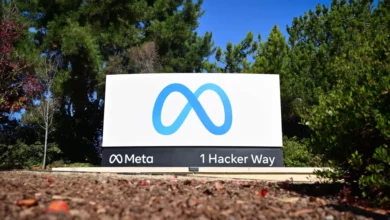How Did The Internet Change Music? Part 3

Correspondente
Musical
Hello everyone, welcome to the Part 3 of how the internet changed the face of music both as a music consumer and as a music creator. I have a unique perspective on both sides of these historical events as I am both, a music consumer and a music creator. A music creator that had always intended to make a living through music. What affected established artists, would affect us all, especially those who had yet to begin a career in music.
Previously, we have covered the events such as the birth of the internet in 1991, the birth of the MP3 in 1995, the peak of Napster in 1999, the birth of MP3 music players in 2002, the birth of YouTube in 2005 and the mobile phones that can access YouTube at any moment, not to mention our mobile phones can hold THOUSANDS of songs as well. To where we are at today, it has been 22 years since the change began.
To be honest, I remember going to Capital Records / EMI as part of work experience in 1994. I will never forget the enormity of the production plant where they were running off Pink Floyd CD’s and cassettes with promo stickers on them, Selena CD’s, Bonnie Raitt CD’s, it was so loud and so many people there working. It was indicative of the state of the music industry right then in 1994 – moving, loud, strong. So let us start right there, as this is right before the birth of the MP3 as we know it would begin to change things in the music industry.
Up until this point, bands or singers would release albums through their record companies with rather substantial markups on the albums. An album after having factored in the costs of recording, paying the producer, manufacturing and artwork would be ON AVERAGE sitting at $6.50, but would have an average markup to 19.99 for the CD. It doesn’t matter if all you want is the single you are hearing on the radio, you had no choice but to pay what the cost of the full CD was. True, some labels would offer CD singles with additional remixes or different versions. The alternative, depending on the style of music you listened to, was the Much Music Dance Mix CD’s they would routinely put out with a collection of the hits. But for a general landscape argument, let’s stay with this markup. As music consumers, we accepted it. If we were big fans of those bands, we would gladly hand over our money to pay for their work. If we only wanted the one song, well, we beat that dead horse already.
Forward to 1999. I actually had a friend tell me that he could make me a CD of ANY songs I wanted for $10. I said impossible, no way he could find any of the songs I wanted, only to my amazement, be proven wrong. I was happy to give him $10 for the mixed CD he made me, but clearly was shocked to see him do it. He told me it was all on Napster. Napster, apparently according to everyone, had EVERY song you could ever want. When I went home that night, I downloaded the program & I don’t know if I can ever totally explain the feeling to see EVERYTHING that was available. It was simply mind-blowing. Within 15 minutes of searching, I started to feel worried, thinking of what effect this was going to have on the bands or singers, I mean, who was going to buy any of the future albums if they are all available here – FREE? Well, it turns out that worried feeling had some weight to it as the RIAA (Recording Industry Association of America) was intent on suing Napster for piracy, allowing copyrighted material to be shared for free amongst at the time, 80,000,000 people. Bands and artists such as Eminem and Peter Gabriel joined in denouncing Napster while a few artists took matters further with their own lawsuits, most notably Metallica and Dr. Dre. Sales in albums plummeted to near unrecognizable figures that the industry had never seen, never prepared for and did not know how to respond. It was such a vulnerable time, making matters worse were that some artists actually supported Napster, MASSIVE names such as Radiohead, Courtney Love, Madonna, Dave Matthews, Moby and Limp Bizkit.
One thing was clear though, the seal was broken and things would never be the same again. Napster was eventually sued and forced to shut down, but with other programs doing the same thing in other countries with different laws, it was an unstoppable movement. As musicians, the established ones and those starting off, it was daunting. We were forced to adapt. To be fair, new bands had the advantage of selling CD’s at shows grassroots style, because their popularity was localized, not available on those P2P sites, at least there was still that benefit.
Things would eventually get clearer to musicians as to where the benefits lay in this new age, where the disadvantages were and where we would need to be creative in setting ourselves aside to stand out amongst this suddenly overcrowded confused era.
NEXT- THE FINAL: How Did The Internet Change Music – Part 4: The Way It Has Become








Redes Sociais - Comentários